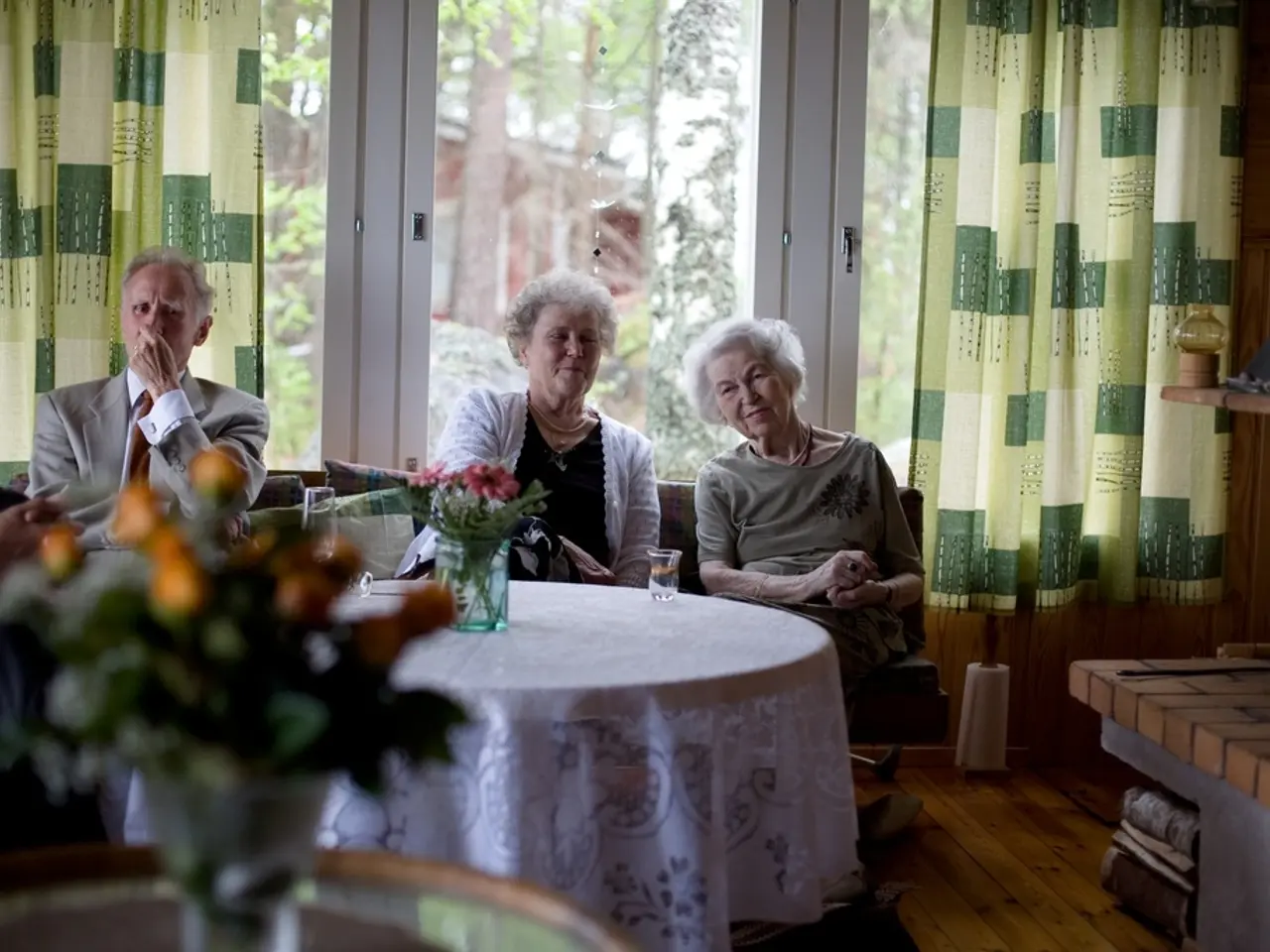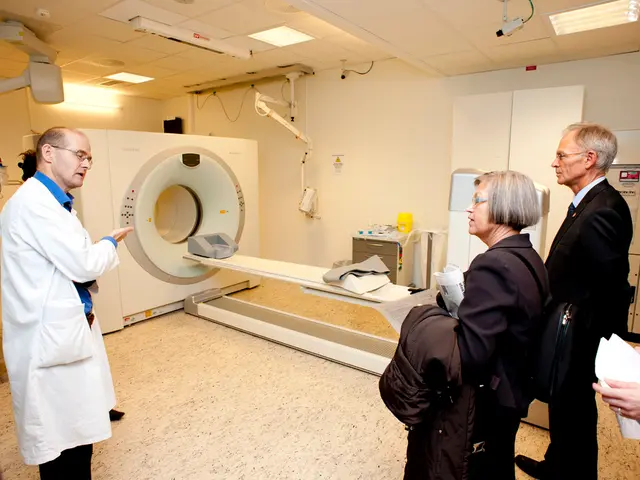Navigating Anxiety in Mature Years: A Handbook for Seniors and Their Loved Ones
In the later years of life, anxiety can become a prevalent issue for many older adults. This article offers practical tips and strategies to help families recognise and support their loved ones in managing and overcoming anxiety.
Anxiety in older adults can be triggered by a variety of factors, such as chronic health conditions, psychological stressors, and environmental changes. Common health problems like heart disease, diabetes, respiratory illnesses, and neurodegenerative disorders like dementia can provoke anxiety due to fears of health deterioration and loss of independence. Cognitive decline and sensory impairments (vision or hearing loss) can increase vulnerability and social withdrawal, further exacerbating anxiety. Psychosocial factors such as grief from losing loved ones, ongoing emotional trauma, financial insecurity, and fear of becoming a burden to family also contribute. Environmental changes like transitioning to assisted living, mobility limitations, and medication side effects are additional triggers.
Anxiety in older adults may manifest as generalised anxiety disorder (GAD), phobias (e.g., fear of medical procedures or leaving home), obsessive-compulsive disorder (OCD), post-traumatic stress disorder (PTSD), or depression. Women tend to have a higher risk, especially after widowhood or divorce.
To manage anxiety in older adults, a comprehensive, multi-faceted approach is recommended. This includes:
- Medical assessment and management: Evaluate and optimise treatment for chronic illnesses and review medications to minimise side effects that contribute to anxiety.
- Psychological support: Counseling, cognitive-behavioral therapy (CBT), and grief counseling can address emotional trauma and loss.
- Social engagement: Encouraging social interaction reduces isolation and loneliness which exacerbate anxiety.
- Physical activity: Regular, appropriate exercise helps reduce anxiety symptoms and improves overall well-being.
- Routine and environment: Maintaining consistent routines and a supportive living environment can provide stability and reduce stress related to change.
- Stress and financial management: Providing access to financial advice and stress reduction techniques helps address worries about money and independence.
- Mindfulness and relaxation: Techniques such as meditation, deep breathing, and relaxation exercises support anxiety reduction.
- Avoid overmedication: Non-pharmaceutical approaches are preferred initially, with careful use of medications if needed, to avoid side effects or dependency.
By understanding the factors contributing to anxiety in older adults, families can take proactive steps to address them. Family support is crucial in helping older adults overcome anxiety, fostering an environment where feelings can be shared openly. Recognising anxiety in older adults is crucial for getting help, as they might not express their feelings openly. If anxiety symptoms significantly interfere with daily life or lead to severe distress, it is essential to seek guidance from a healthcare professional.
Together, families can create an atmosphere of hope and resilience, allowing older adults to enjoy their later years with greater peace of mind. Even simple exercises like stretching or gentle yoga can have a profound impact on anxiety. Fostering social connections is vital for older adults. Participating in community events, joining clubs, or spending time with family can combat loneliness. Seeking professional help when necessary ensures that older adults have the tools they need to thrive. Some individuals may also benefit from medication, but this should always be discussed with a doctor to understand potential side effects. Therapeutic options such as cognitive-behavioral therapy (CBT) can improve the quality of life for those with anxiety.
Resources:
[1] National Institute of Mental Health (2021). Anxiety Disorders in Older Adults. Retrieved from https://www.nimh.nih.gov/health/topics/anxiety-disorders/older-adults/index.shtml
[2] American Psychological Association (2020). Helping Older Adults Manage Anxiety: A Guide for Families. Retrieved from https://www.apa.org/pi/aging/resources/guides/anxiety
[3] Alzheimer's Society (2019). Anxiety in people with dementia. Retrieved from https://www.alzheimers.org.uk/about-dementia/symptoms-and-diagnosis/symptoms-of-dementia/anxiety
[4] National Centre for Mental Health (2018). Older adults and anxiety. Retrieved from https://www.ncmh.ie/older-adults-and-anxiety/
Mental health in older adults, including anxiety management, can be addressed through a combination of medical assessments, psychological support, social engagement, physical activity, routine and environment management, stress and financial management, mindfulness, and avoiding overmedication. Resources such as the National Institute of Mental Health, the American Psychological Association, Alzheimer's Society, and National Centre for Mental Health offer valuable guidance on helping older adults manage anxiety. Encouraging activities like gentle yoga and community participation can aid in combat loneliness and provide hope for a peaceful later life.




